With home-based learning, workplace closures, and telecommuting as the new norm – it is a lot for anyone to navigate, especially for parents of preschoolers. In an instant, the world became full of homeschooling parents. This time, the extended time at home isn’t simply a school holiday and we can no longer organise playdates for our kids. Instead, we are all staying home to do our part, hoping that we can put a stop to the spread of the coronavirus disease (COVID-19).
While parents across Singapore are scrambling to get their homes ready for their new work arrangements and to mentally prepare themselves to supervise and educate young children for the next month, Mulberry Learning’s teachers are working really hard to create resources to support parents in this “new role”. Our Mulberrians have been enjoying their home-based learning materials, as well as live chats with their teachers.
As you trudge on into your new role, you’ll need to first abide by this first golden rule; go easy on yourselves. Know that you are not a professional in this realm and that you’re now essentially tasked to perform two full-time jobs! Even experts have acknowledged how the home environment is ultimately different from a preschool in terms of the available resources, expertise, and social environment. So, don’t be too hard on yourselves. It is okay if your child stares blankly at you, it is okay if your little one doesn’t complete the activity to your expectations, it is perfectly alright!
8 Boredom Busters for Young Children
Instead, take this Circuit Breaker as a chance to work together with your preschooler, understand them better, and in turn build stronger bonds. If you’re looking for some simple stay home activities during this trying time, consider the following 8 activities to keep your little ones engaged.
1. Keep Calm and Read On
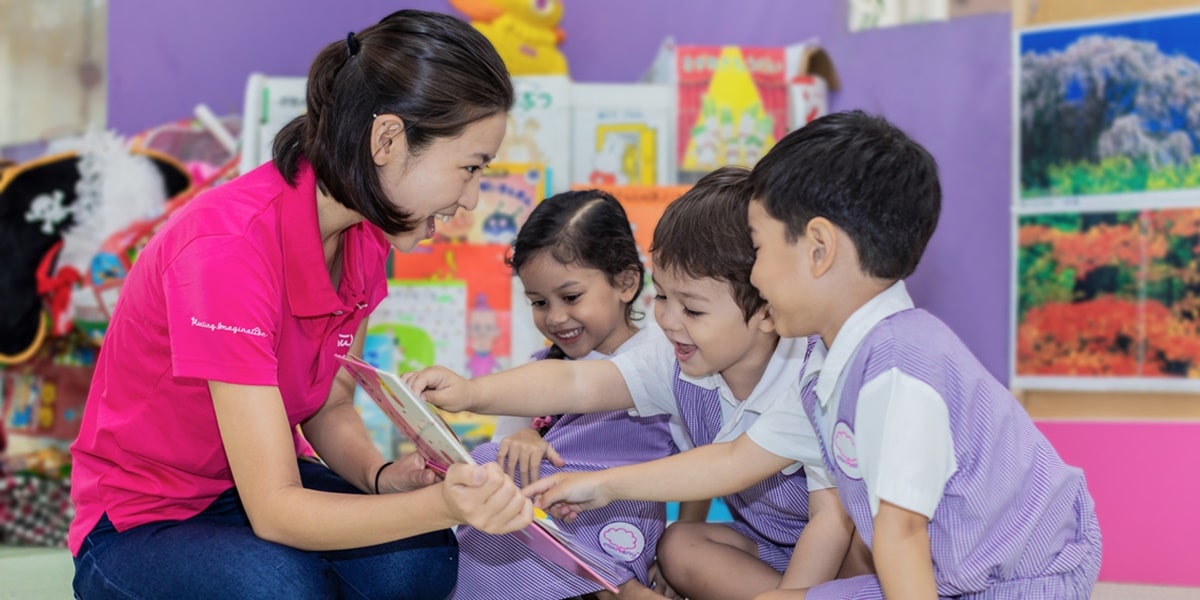
I’m sure there’s always a book or two lying around the house and you can never go wrong with allowing your little one to have some quiet reading time. If you are just about to start a conference call, perhaps it is time to sit your little one down and allow them to peruse the numerous colourful pages of the book.
Reading is an essential skill preschoolers require for success. Besides enabling them to extend their vocabulary bank, reading also helps them to improve their attention span and develop better critical and creative thoughts. To ensure that your preschooler is spending productive time reading, make sure that you create a little cosy corner at home and keep distractions at bay.
2. Engage in Sensory Play
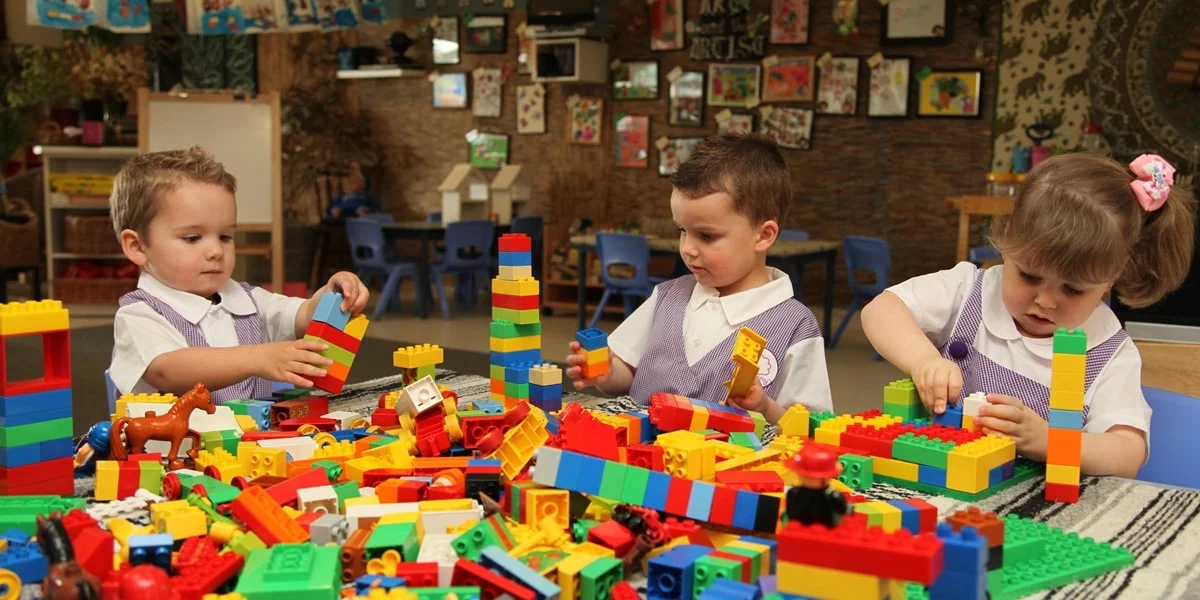
From the moment your baby is born, they are processing information about the world through their five senses – what they see, hear, touch, smell, and taste. What we adults often don’t know is that sensory learning continues to be important through a child’s early years and into their school years as it helps in the development of the brain!
Beyond the positive impact on the brain, sensory play also helps develop a child’s thinking skills, fine and gross motor abilities, and is a great way for them to relax. Sensory play activities are easy to set up and involves items that can be commonly found in most homes. While you may not have lego bricks at home, you definitely will have rice, beans, chickpeas and pasta – all these will do the trick!
3. Foster Creativity with Art and Craft
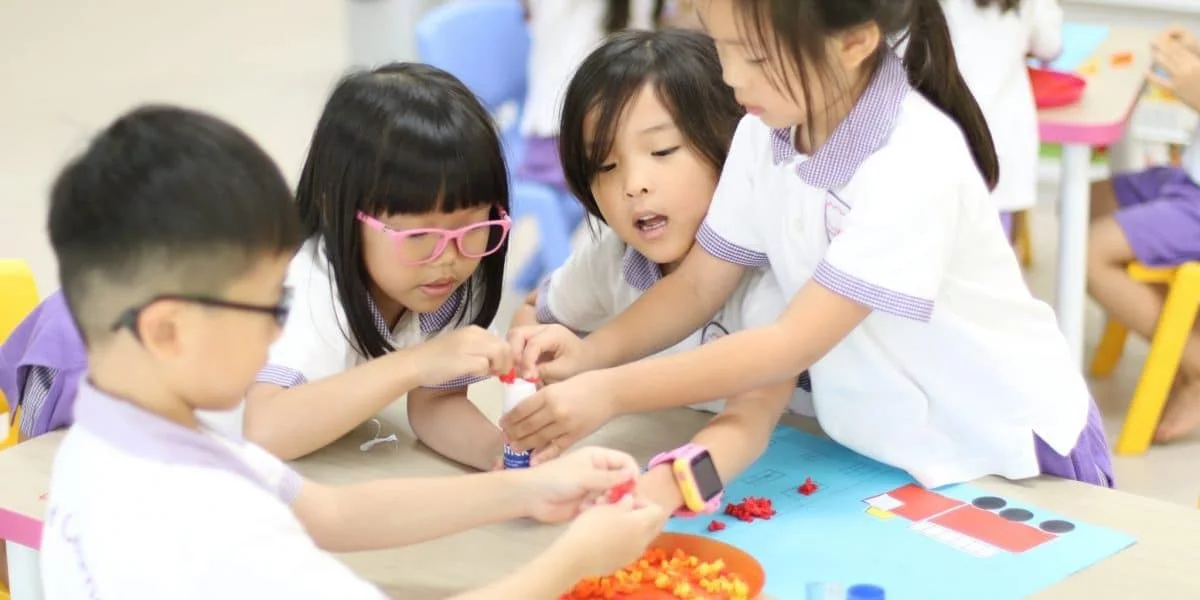
There are tons of printable colouring pages and art and craft materials that you can find online which only requires you to have a printer at home. Rather than getting your child to colour using colour pencils, consider getting them to try different mediums – crayons, paints, paper maches, handprinting, et cetera. The world is your oyster! Some of these amazing craft work can also help to build a child’s literacy and numeracy skills.
4. Conduct Simple Science Experiments
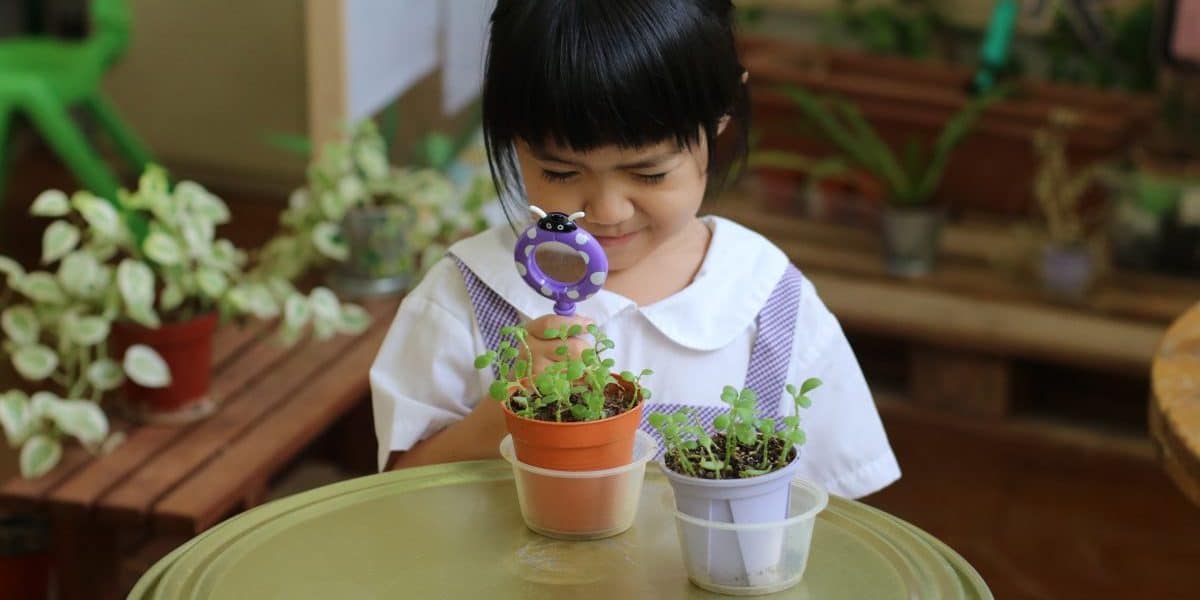
Should you have additional time, why not consider conducting simple science experiments with your little ones. The Rainbow Milk Science Experiment is one that helps children learn about colours and the properties of colours. With just food colouring and milk, it would certainly be a fun-filled afternoon with your little one. Or you could also get your children to grow some bean sprouts to learn about plants and what they need to survive. That will keep them occupied for several days as they wake up to check how much their plant has grown each day!
5. Try Simple Inquiry-Based Learning Activities
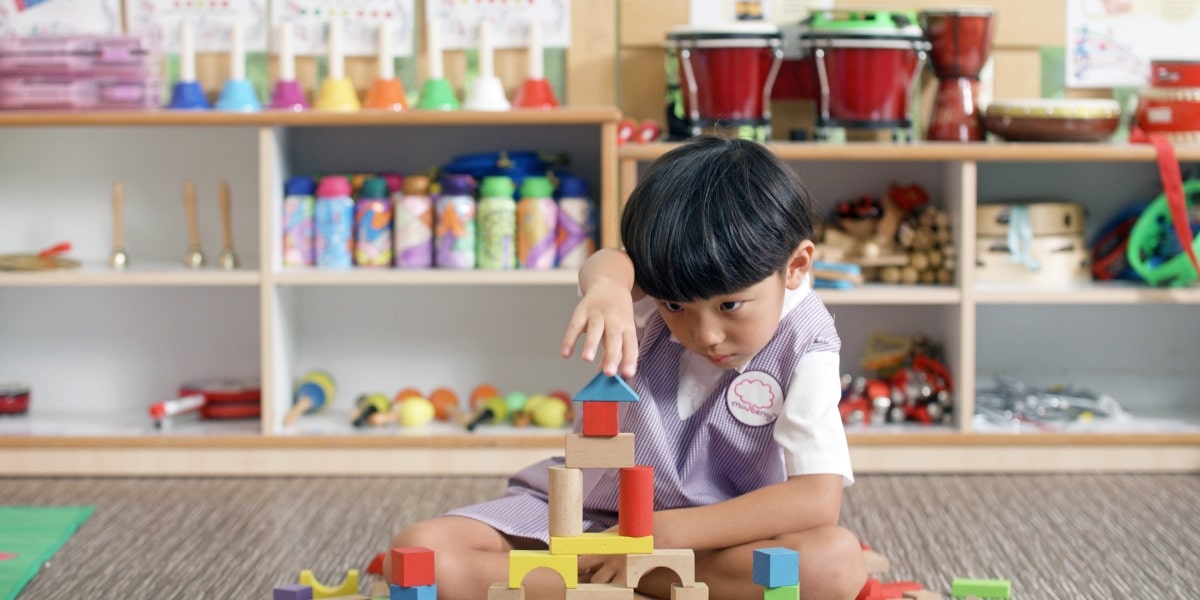
Play can be productive too and by just putting a little bit more thought into the activities. Inquiry-based approach to playtime includes posing questions to children and allowing them to test out their hypothesis in a safe environment. Doing so allows them to work on their problem-solving skills and encourages flexible thinking. For instance, rather than getting them to build structures using Lego bricks, you could provide them with pebbles, Jenga blocks, or even irregular shaped objects and ask them, “How tall do you think you can stack what you have in front of you?”. These mini challenges would excite little children and if they also have a sibling, it provides an opportunity for healthy competition or cooperation.
6. Prepare Meals with Your Little Ones
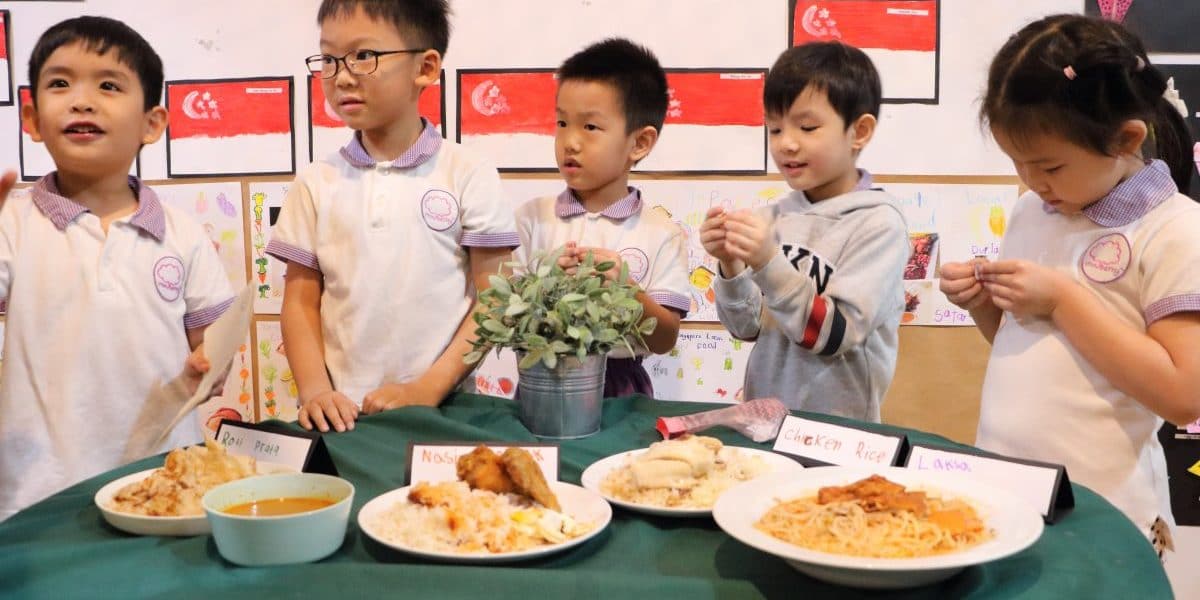
Since everyone has to be at home, most families will be whipping up a storm in their kitchen this month. Instead of doing it all on your own, your preschoolers could be useful little helpers too! Allow them to help you with simple and safe tasks such as removing heads of ikan bilis (dried anchovies), or the black beans of your beansprouts. These mundane preparation activities could also be good educational opportunities as it helps young children develop essential fine motor skills, hand-eye coordination and concentration. You could also get them to measure out sugar or sauces, practising their listening and mathematical skills.
7. Get Active At Home

“Mummy, can I go to the playground?” may be a question that you’ll constantly get in the coming month. Especially when healthcare experts have recommended at least one hour of physical activity each day for young children, it can be particularly hard to reject your little one’s requests. Instead, you may want to encourage your little one to work out with you and is another opportunity to have fun and bond! Simple stretching exercises, family cardio workout, yoga for kids, singing nursery rhymes with physical movements or simply building an obstacle with existing furniture or toys will help them to get up into a sweat!
8. Use Screen Time Productively
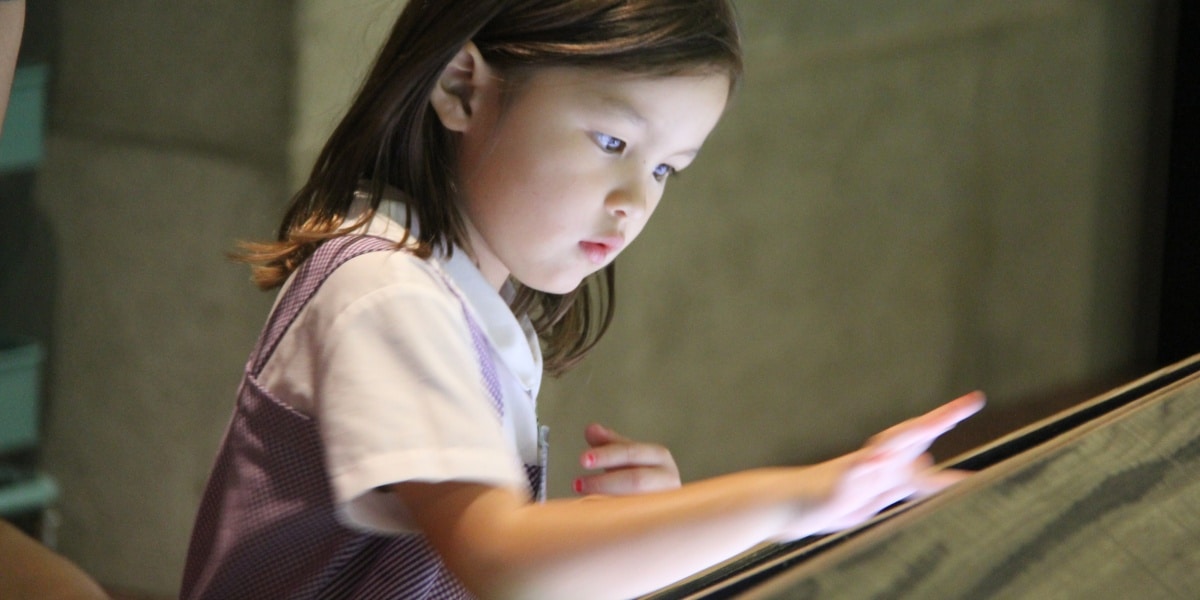
Well, when all else fails, there’s always a tablet or the television screen. While it is easy to turn on Netflix and allow your little ones to watch endless cartoons to while their time away, screen time can be productive time too! Consider getting your child to watch short films that are based on popular Children’s books or Read Aloud books that engage your preschoolers and help them to strengthen their listening skills. There are also lots of fun games where your little ones get to brush up on their mathematical skills.
We hope that these 8 ideas will help mummies and daddies to spend time productively at home with your preschoolers. Start enjoying your Circuit-Breaker with your little ones! 🙂
About Mulberry Learning
Established in 2006, Mulberry Learning is an award-winning Reggio-inspired preschool with 11 locations around Singapore. Mulberry Learning is the world’s first and only preschool network certified by the USA for the Habits of MindTM framework, and its curriculum has been voted as “Singapore’s Best Holistic Learning Programme” for 3 years running by leading parenting publications.
Register Your Interest and find out how we can help your little one become a confident communicator, independent thinker, and a passionate lifelong learner.








